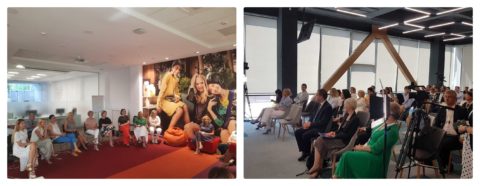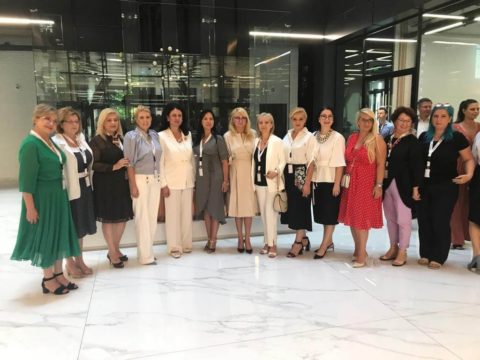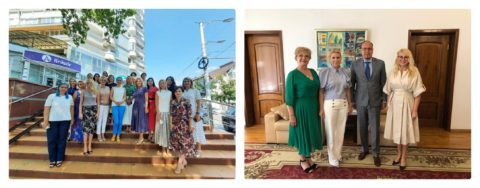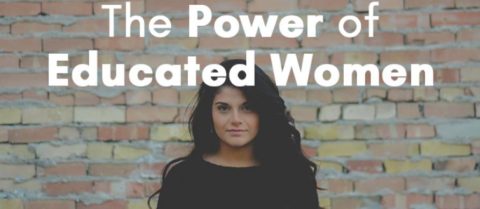Romania and Moldova- close collaborations for supporting and promoting female entrepreneurship
Digitization, innovation, entrepreneurship education, bilateral relations between the Romanian and the Republic of Moldova regarding business environment and academic cooperation were some of the most important topics addressed in Chisinau, during the Economic Forum "Opportunities to invest in the Republic of Moldova and Romania", organized in Chisinau on the 14th of July, with the participation of ANAA (National Association of Entrepreneurs) delegation led by the President of the association, Cristina Chiriac.

The visit to the Republic of Moldova focused on a series of bilateral meetings with representatives of the business environment, the associative and academic environment and the official meeting with the Romanian Ambassador to Chisinau, Daniel Ioniță.
Also, during the visit, ANAA together with the Association of Business Women of Moldova - AFAM strengthened their partnership in order to develop sustainable projects to support women in business, entrepreneurship education and digitalization but also to support and promote the Wingate platform which has as a main purpose to increase the number of women-led companies in areas of interest such as innovation, contributing to competitiveness and equal opportunities.
 The need of support and promotion of women who have succeeded in business so that they become benchmarks of good practice are essential to stimulate the community of women entrepreneurs in Moldova, and the role of the partnership between the two bodies is to promote gender equality and the ability of women to assert themselves in society, through common plans and actions. Entrepreneurial education and digitalization are key factors in managing and developing the business and promoting gender equality. It also has been held meetings with representatives of the European Business Association - EBA and the Employers' Association of Light Industry APIUS.
The need of support and promotion of women who have succeeded in business so that they become benchmarks of good practice are essential to stimulate the community of women entrepreneurs in Moldova, and the role of the partnership between the two bodies is to promote gender equality and the ability of women to assert themselves in society, through common plans and actions. Entrepreneurial education and digitalization are key factors in managing and developing the business and promoting gender equality. It also has been held meetings with representatives of the European Business Association - EBA and the Employers' Association of Light Industry APIUS.

During the Economic Forum, meetings were held with many business women from the Republic of Moldova who were invited to join the international community of entrepreneurs that is being created within the Wingate project.
The Wingate project is funded by Iceland, Liechtenstein and Norway through the EEA and Norway Regional Cooperation Grant Fund.
#EEANorwayGrants #FundforRegionalCooperation
$15 billion to help women in developing countries access jobs

G7 foreign and development ministers meeting in London at the beginning of May will invest $15 billion in development finance over the next two years to help women in developing countries access jobs, build resilient businesses and respond to the devastating economic impacts of COVID-19.
They will also sign up to new global targets to get 40 million more girls into school and 20 million more girls reading by the age of 10 in low and lower middle income countries by 2026.
Educating girls is one of the smartest investments we can make to lift people out of poverty, grow economies, save lives, and build back better from COVID-19. A child whose mother can read is 50% more likely to live beyond the age of 5 years, twice as likely to attend school themselves – and 50% more likely to be immunised.
COVID-19 has had a disproportionate and profound impact on women and girls, including losing precious school time, reduced access to lifesaving sexual and reproductive health services, a spike in gender-based violence, and increased risk of job loss. Now, these fresh commitments by the world’s leading democracies, driven by the UK, put gender equality at the heart of global co-operation to build back better from COVID-19.
Even before the pandemic, women in developing countries had significantly fewer economic opportunities than men and shouldered the majority of unpaid care work reducing their time for paid work. COVID-19 has compounded this, with new research showing $1 trillion could be lost from global growth as female workers fall out of the workforce.